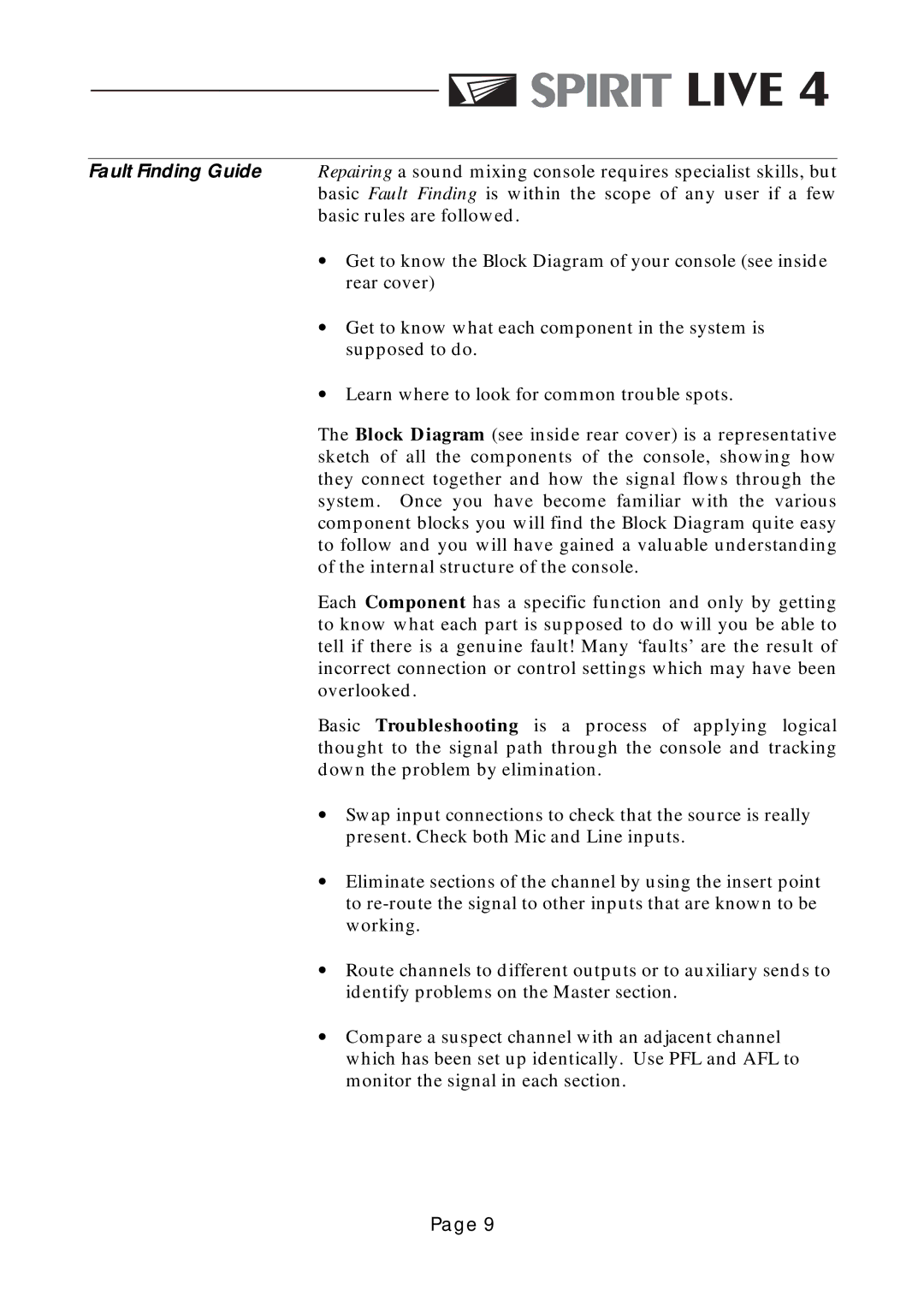
Fault Finding Guide Repairing a sou nd m ixing console requ ires sp ecialist skills, bu t basic Fault Finding is w ithin the scop e of any u ser if a few basic ru les are follow ed .
∙Get to know the Block Diagram of you r console (see insid e rear cover)
∙Get to know w hat each com p onent in the system is su p p osed to d o.
∙Learn w here to look for com m on trou ble sp ots.
The Block D iagram (see insid e rear cover) is a rep resentative sketch of all the com p onents of the console, show ing how they connect together and how the signal flow s throu gh the system . Once you have becom e fam iliar w ith the variou s com p onent blocks you w ill find the Block Diagram qu ite easy to follow and you w ill have gained a valu able u nd erstand ing of the internal stru ctu re of the console.
Each Component has a sp ecific fu nction and only by getting to know w hat each p art is su p p osed to d o w ill you be able to tell if there is a genu ine fau lt! Many ‘fau lts’ are the resu lt of incorrect connection or control settings w hich m ay have been overlooked .
Basic Troubleshooting is a p rocess of ap p lying logical thou ght to the signal p ath throu gh the console and tracking d ow n the p roblem by elim ination .
∙Sw ap inp u t connections to check that the sou rce is really p resent. Check both Mic and Line inp u ts.
∙Elim inate sections of the channel by u sing the insert p oint to
∙Rou te channels to d ifferent ou tp u ts or to au xiliary send s to id entify p roblem s on the Master section.
∙Com p are a su sp ect channel w ith an ad jacent channel w hich has been set u p id entically. Use PFL and AFL to m onitor the signal in each section .
